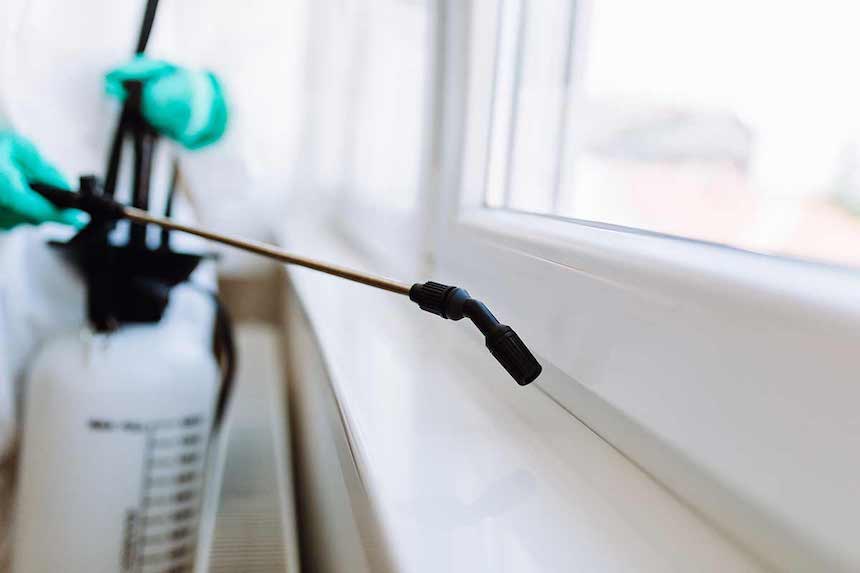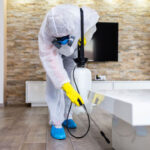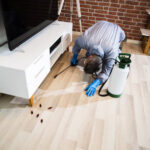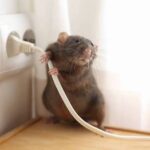
Keeping your home pest-free is quite important for several reasons. Some pests transmit diseases, which means that their presence puts the inhabitants at a certain risk. Others cause structural damage or damage to your furniture, which means that they cause financial damage. Even without all this, the very sight of pests can cause emotional distress, which is quite a serious issue that shouldn’t be overlooked. So, keeping pests out of your home should definitely be a top priority. Here are six proven methods that you can use to achieve this worthy goal.
Seal All the Openings
The first thing you need to pay attention to are the gaps through which the pests may enter your home. In order to avert this, you need to start by inspecting doors and windows. Next, you should check the rest of your home’s exterior walls and openings for gaps. Keep in mind that the majority of indoor pests are either rodents or insects. This means that even the tiniest gap is enough for them. Additionally, check your attic for bird nests. The fact that you don’t go there quite often makes it into a hazardous area (pest-wise).
Keep Your Home Clean
Another thing you should do is keep your home as clean as possible. Food leftovers attract pests; however, piles of trash everywhere also serve as a perfect nesting (and breeding) ground for these pests. These piles provide them with cover where they can pile food and multiply. They’re also out of sight, which means that it will be harder for you to notice and acknowledge that there’s a pest infestation in your home. On top of this, there are numerous other reasons why you want to keep your home clean and hygienic at all times.
Make a Termite Barrier
Another thing worth considering is using physical barriers to prevent pest infestation. For creatures like squirrels, pruning branches next to your property might be quite effective. Some pests can be kept out with a fence. However, when it comes to insects, and termites especially, you might want to make a termite barrier to keep them out. This is one of the simplest and most effective methods, which allows you to keep the perimeter of your home safe. While it is a complex project, it doesn’t require any interior work. As such, it’s quite convenient and almost non-invasive.
Keep the Place Dry
The next thing that attracts pests is moisture. So, in order to make the place less attractive for pests, you need to learn how to keep it dry. Unfortunately, pests are also attracted to damp areas around your home, which gives you one more concern. Out of bugs that are attracted to moisture, cockroaches and ants are the most notorious. Still, earwigs and silverfish are not to be underestimated either. Cleaning home regularly, looking for signs of a leak and proper ventilation are key components in keeping the home dry and pest-free.
Natural Repellants
Another thing you should look out for is natural pest repellants. There are two categories of methods that you can apply here. First, you have repellants in the form of plants that you will place in the ground somewhere on the premises. Second, you have homemade repellants that you can safely spray or place even indoors. The key thing to keep in mind is that if something is harmful to your family, pests (or even your own pet) will bring it in. Keeping your home pest-free is not enough for a method to be effective. You need to learn how to do so without endangering your family, as well.
Recognize When Things Get Out of Hands
The last thing you need to keep in mind is the importance of understanding when it’s too late for preventive measures. When pest infestation has already taken place, chances are that you will lack the toolset to make your home pest-free once again. It is at that point that you need to contact professionals. Living in a pest-infested home is a hazard for everyone’s health but it’s also a pretty bad scenario from the perspective of a homeowner. This is because some of these pests cause significant property damage, which is a problem you should try to avert at all costs.
In the end, you need to understand several basic principles. For starters, your household is one of your most valuable assets (if not the most valuable asset), which is why it needs all the protection you can provide it with. Second, you can only use methods that have no potential of harming the residents of the place. Third, it’s simpler, more frugal, and more effective to act preemptively rather than reactively. Lastly, when things get out of hand, call the professionals.
- Best Ways To Keep Pests Out of Your Home - May 11, 2021
- How To Upgrade an Electrical System During a Home Remodeling - April 8, 2021
- How To Design the Kitchen of Your Dreams - March 5, 2021






